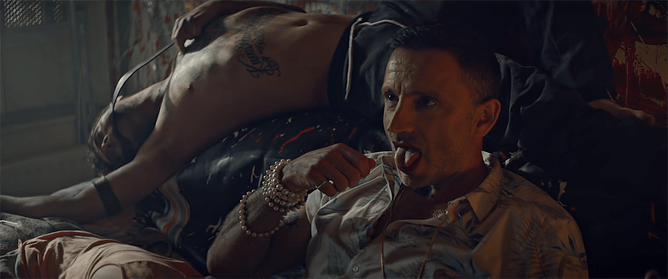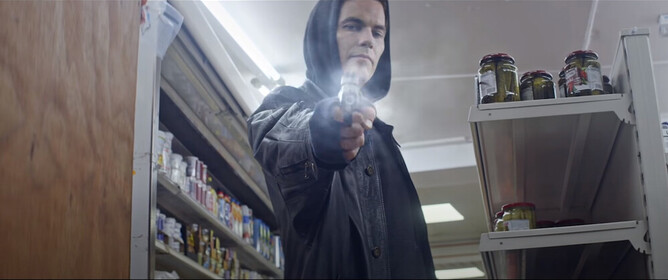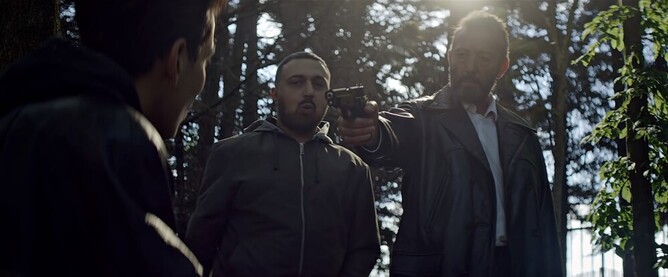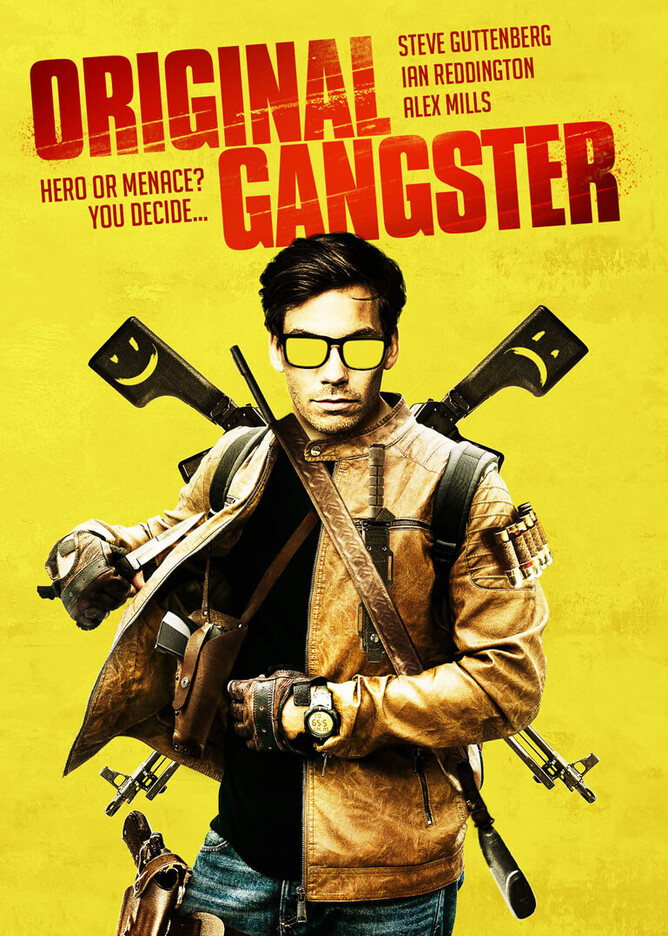ORIGINAL GANGSTER is released in the U.S, 1st December 2020.
If there is one recurring question that springs to mind when watching a Savvas D. Michael film, is there no limit to his cinematic ambitions? As with Michael’s previous film Red Devil, there is a sense of a filmic virtuosity striving to make its mark in ORIGINAL GANGSTER. With its flamboyant storytelling and grandiose characters, the film works as a theatrical remoulding of a canonical, but rebellious genre, in British cinema, the gangster film.
British film is known for a certain fascination with gangsters and the crime film. The ascension of The Krays into 1960s popular culture provided a certain mythology for the British gangster film to hang its coat on. The East End hard man has shaped both the look and narrative of the national crime film, owed in part to the Krays’ personal and criminal legendry presence that still casts a pulsating shadow over British popular culture. But the British gangster film has also advanced alongside the other national filmmaking canon that draws upon ‘real life’, the social realist film. And both traditions are embedded with British cinema’s drive for realism’s need for authenticity. Actors such as Michael Caine, Bob Hoskins, Ray Winstone and Tom Hardy, have added their own ‘authentic’ inflection by virtue of their star persona’s association with a working-class London identity.
But while Michael’s ORIGINAL GANGSTER draws upon tried and tested crime narratives of masculine loyalty and betrayal, the film throws over any of the genre’s historical obsession with authenticity, for an operatic, even majestic, tale more akin to a Greek tragedy. There is more than a touch of Orpheus into the underworld about ORIGINAL GANGSTER.
The film chronicles, and is narrated by Caster (Alex Mills), a feral and homeless orphan...
The film chronicles, and is narrated by Caster (Alex Mills), a feral and homeless orphan as he navigates the London criminal underworld in search of belonging, love, and family he was deprived of when his parents were killed. The film opens in the middle of an execution where hitman, Milo (Ian Reddington), takes pity on and spares the life of the young Caster (Badger Skelton), imploring the boy to remember Milo for saving his life. A fast forward in time to Caster as an adult, he is homeless, drinking heavily and confrontational, living in an opaquely fabled London. By chance Caster is reunited with Milo, who offers a certain stability by presenting Caster with a chance if he successfully completes a small-time drug deal. Things do not go to plan, initiating a sprawling, crawl through drug deals, killings, revenge, and possible redemption for Caster as he seeks a return to a familial existence. Caster’s growing relationship with Milo maintains a certain violent ambivalence As with Red Devil, the narrative is littered with burlesque characters that Caster encounters as he makes his way through what can only be described as a Wizard of Oz trip through London gangland. One such character is Jean-Baptiste Philippe, a local drug lord, played with more than a touch of darkly comic relish and some interesting hair action by Steve Guttenberg. Yes, narrative is not the only fantastical element of ORIGINAL GANGSTER. It is a surprising casting choice, and one cannot help turning their thoughts to Mickey Rourke and his luscious locks from The Wrestler.
Despite possessing the usual elements of a gangster film, it is not that simple categorising ORIGINAL GANGSTER.
As Caster makes enemies, the film criss-crosses to a climax that is, as you can imagine, a suitably, extravagant Western-style type face-off between Jean-Baptiste Philippe and his gang of builders, and righteous outsider, Caster. When the film does finally reach the closing scene, it may not be the most unexpected, but it is narratively effective.
Despite possessing the usual elements of a gangster film, it is not that simple categorising ORIGINAL GANGSTER. The film is nothing but operatic in its aspirations – the frame can hardly button down where the film seeks to branch out. The arc of storytelling is reminiscent of The Godfather and its ilk, in its grand narrative scope, with a soundtrack amplifying the film’s extravagance. It is evident, Savvas D. Michael does not want his films to be constrained by genre, nor national canonical filmmaking traditions. ORIGINAL GANGSTER kicks against contemporary British film history. The flamboyance so central to Michael’s filmmaking style edges him into an alternative tradition of British film outsiders such as Ken Russell, albeit without Russell’s more formal and technical directing style, and hyper-stylised sets. Michael’s approach is a little bit ‘punk’, in the vein of Selene Kapsaski’s Spidarlings. And along with Nicolas Winding Refn’s Bronson, ORIGINAL GANGSTER reimagines working-class narratives and spaces on film by rejecting the more formulaic treatment afforded by traditional generic structures and aesthetics.
ORIGINAL GANGSTER is another example of the creativity abound in independent British filmmaking.
While the film may not meet mainstream expectations or tastes, it should not be judged on standard critical approaches. Much still needs to be developed for Michael in terms of his directing and script writing abilities. When I reviewed Red Devil, I wrote then how Michael should refine his directorial style to reign in the more unharnessed areas. A visual style akin to Ken Russell is achievable if Michael could match his technique to his filmic vision. But given the minimal budget ORIGINAL GANGSTER was produced with, the result is evidence enough of Michael’s potential and talent – and it is within that financial constraint the film should be appraised. A more substantial budget would bring with it opportunities to really test Michael’s cinematic potential. But for now, ORIGINAL GANGSTER is another example of the creativity abound in independent British filmmaking. Savvas D. Michael may not be Guy Ritchie. But I for one are grateful for that.
Kat Flint-Nicol

